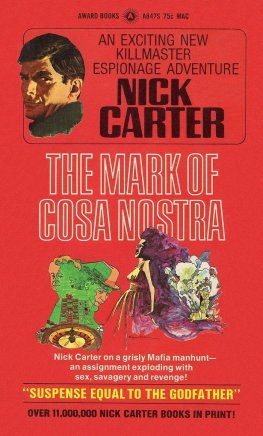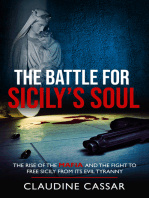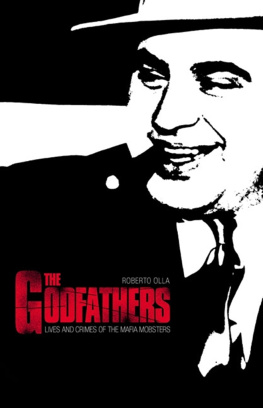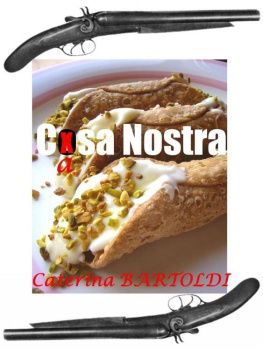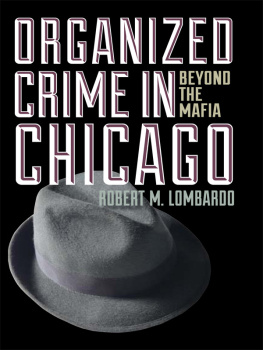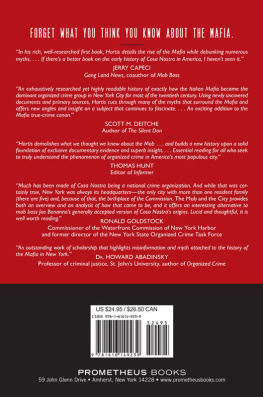
2012, 2014 by Philip Leonetti, Scott Burnstein and Christopher Graziano
Published by Running Press,
A Member of the Perseus Books Group
All rights reserved under the Pan-American and International Copyright Conventions
This book may not be reproduced in whole or in part, in any form or by any means, electronic or mechanical, including photocopying, recording, or by any information storage and retrieval system now known or hereafter invented, without written permission from the publisher.
Books published by Running Press are available at special discounts for bulk purchases in the United States by corporations, institutions, and other organizations. For more information, please contact the Special Markets Department at the Perseus Books Group, 2300 Chestnut Street, Suite 200, Philadelphia, PA 19103, or call (800) 810-4145, ext. 5000, or e-mail .
Library of Congress Control Number: 2012938752
E-book ISBN 978-0-7624-5600-0
9 8 7 6 5 4 3 2 1
Digit on the right indicates the number of this printing
All photos courtesy of Philip Leonetti
Cover design by Whitney Cook
Edited by Greg Jones
Typography: Garage Gothic, Sentinel, and Forza
Running Press Book Publishers
2300 Chestnut Street
Philadelphia, PA 19103-4371
Visit us on the web!
www.runningpress.com
CONTENTS

THEY WOULD MEET IN THE EDEN ROC HOTEL IN MIAMI, IN THE RESTAURANT THAT LOOKED OUT ON THE SWIMMING POOL.
Meyer Lansky, the aging underworld genius, would be sitting at a table in the corner. And here would come Nicky Scarfo, the Atlantic City gangster who was soon to be the most violent Mafia boss in America, and Philip Leonetti, Scarfos young nephew and future crime family underboss.
Three generations of American mobsters sitting around talking. Lansky, white-haired and thin, in his 70s at the time and fighting heart and stomach problems, would dominate the conversation with stories about the old days. Scarfo, in his late 40s, his brown hair combed straight back, his eyes darting around the room, would nod and occasionally offer an opinion. And Leonetti, trim and movie-star handsome, in his early 20s, would sit quietly.
Listening.
Learning.
Now one of the most important Mafia informants in history, Leonetti never said much during those meetings down in Miami. He was just happy to be there. He looked at Lansky the way others would look at DiMaggio, Caruso, or Hemingway. One of a kind. A man who defined the world in which he operated.
Lansky was there at the beginning, when it all started, when Cosa Nostra was formed. Leonetti, who rode to power with his uncle and who for a time controlled the mobs rackets in Philadelphia and Atlantic City, is a man who helped bring it all to an end.
This was back in the 1970s, Leonetti said several years ago as he recounted those trips to Florida. Any time we went, my uncle would call and wed go over and see Meyer. Hed be sitting there in the restaurant. Him, Nig Rosen. Mickey Weissberg. They used to get together there every day. It was, like, Meyers hangout. Theyd go there and play cards. Meyer liked us. He liked my uncle. So wed sit around and hed tell stories about the old days, about Benny and Charlie and how it used to be.
Benny was Benjamin Bugsy Siegel. Charlie was Charles Lucky Luciano. Siegel, of course, brought the mob to Las Vegas. He built the Flamingo Hotel Casino in 1947 and that turned the desert into a money machine for the mob. Then he forgot who his partners were. And so he was killed.
Years later, Lansky still talked about it.
Meyer told us about how upset he was when Benny got killed, Leonetti said. He really loved Benny. But he said Benny was robbing them guys and he wouldnt lilsten. He said Benny never liked to listen to the Italians. And that he thought the casino was his, which it wasnt. It was theirs. Benny would only listen to Meyer and Meyer said he kept him under control the best he could, but when they decided to whack him, there was nothing he could do. It broke his heart when they killed him, but he couldnt stop it. It was business.
Then he looked at my uncle and he said, Benny was a stone killer, Nick. But you know, theres a lot of killers [in the Mafia]. My uncle just nodded.
Leonetti would eventually become one himself. Thats part of his story. How he became a hitman for his uncle, how he turned on the man who raised him, and how he eventually ended up on the witness stand are all part of what this book is about.
There has never been a Mafia witness like Leonetti. Not Joe Valachi. Not Vinnie Teresa. Not Salvatore Sammy the Bull Gravano.
Leonetti is the essence of what the America Mafia was in the 1980s and what it has become in the years since. His life was shaped, twisted, and nearly destroyed by it. His decision to cooperate has turned it upside down.
Call it a story of family values gone awry.
A bloody story of murder that ends with personal redemption.
Murder, extortion, loan sharking, and gambling, Leonetti did it all. Then, faced with the prospect of spending the rest of his life in prison and looking at the possibility that his own teenaged son might be heading down the same road, he broke with his uncle, with the mob, and with the life.
From the witness stand he helped bring down high-ranking mob figures in Manhattan, Brooklyn, Boston, Pittsburgh, Hartford, and Philadelphia. Leaders of the Genovese, Gambino, Colombo, Patriarca, and Lucchese crime families are behind bars as a result.
He was, without question, the reason Gravano agreed to testify and, consequently, the reason John Gotti was finally convicted.
Leonettis story is the saga of the American Mafia. It stretches from Lansky to Gotti, from Los Angeles to Palermo. Its a tale of money, murder, and treachery that puts the lie to the so-called men of honor. Its the view of a man sucked deep inside the underworld by the pull of a distorted sense of family, honor, and dignity. And it is a lesson in human redemption and second chances orchestrated by someone who had the intelligence, the strength, and the courage to break the chains that had bound him to the life.
For months after his defection, Leonetti had been trying to explain to the FBI and federal prosecutors what it meant to be part of that life. He wanted them to understand the twisted sense of values he had grown up with, about the Svengali-like influence his unclea surrogage father, in facthad held over him.
It was like walking with the devil, he said as agents and government lawyers nodded and jotted down notes on the yellow legal pads they always brought to his debriefing sessions. Then theyd go on to the next question, the next topic, and the next chapter in the saga of the rise and fall of the Scarfo crime family. It was clear to Leonetti then that they really didnt understand what Cosa Nostra does to a person, how it corrupts your soul.
But Leonetti wanted them to understand. After 20 years, he didnt want to be part of it anymore. He was tired of the murders, worn out by the treachery, and sickened by the deceit. But unless he could explain, unless he could show them, he knew hed never be able to put it behind him.
Finally, there was one moment when it all came together, when it all made sense.
He was on the stand in federal court in Philadelphia making his debut as a witness. This was in January of 1990, six months after he had broken with the mob and started talking with the feds. He was testifying against four of his former associates, detailing the operations of the crime family he and Scarfo had once controlled, and implicating the four mobsters sitting at the defense table in the organizations activities.
Next page

